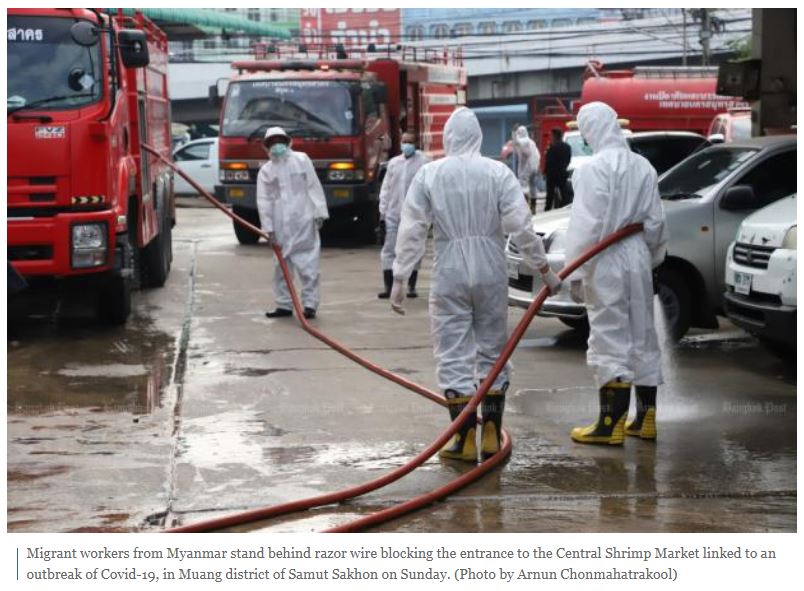Thailand: Seafood supply chain optimistic
Despite a surge of new infections in Samut Sakhon, food processors and seafood restaurants remain upbeat about food-related business prospects.
Visit Limlurcha, president of Thai Food Processors Association, said Thai food processors are not yet concerned about the surge in new infections, adding other food-producing countries have been facing more serious outbreaks than Thailand.
“[Thailand] has never neglected the preventive and safety measures against the spread of Covid-19 but instead underlined the importance of quality, product safety, consistency and personal hygiene standards,” said Mr Visit.
Poj Aramwattananont, president of the Thai Frozen Foods Association, said all members of the association have implemented preventive measures against the pandemic for up to six months and issued prevention measures in partnership with the Fisheries Department for four months to build up confidence among customers.
The association is also tightening preventive measures and is scheduled to jointly meet representatives from the Fisheries Department, the Public Health Ministry, the Labour Ministry and Commerce Ministry today to consider additional measures.
“New infections stem largely from the illegal entry of foreign workers who have fled Myanmar since August, due to the grave state of the outbreak in Myanmar,” he said. “Frozen food factories generally employ only registered foreign workers and have strict safety and supervisory measures to prevent the spread of the virus and food contamination.”
He proposed the government prioritises distinguishing foreign workers who enter the country illegally from registered workers to make the prevention measures more effective.
SET-listed Charoen Pokphand Foods (CPF) on Monday made reassurances that its shrimp are not contaminated, while production remains undisrupted by the new infection surge in Samut Sakhon.
Pairoj Apiruknusit, CPF’s executive vice-president, said the company has maintained the strictest biosecurity measures at all of its operations since March. This includes the personal hygiene of staff at the workplace and outside work.
“All of the company’s workers have been asked to stay inside the facility to reduce the risk of infection. Our measures aim to make sure consumers receive safe food from a traceable source,” said Mr Pairoj.
Thiraphong Chansiri, chief executive and president of SET-listed Thai Union Group, said the company continues to follow all measures required by the government and local authorities and, as of Monday, the company has one case confirmed among employees in Samut Sakhon.
“As of Monday, all of our factories in Thailand remain open and we are doing everything we can to prevent any production shutdown. However, should in the unlikely event of the worst-case scenario of all Thai Union Samut Sakhon plants closing for two weeks, this would have an impact of less than 2% on total revenue, and the company has backup capacity to partially offset that,” he said.
A source at Laem Charoen Seafood, a 41-year-old Thai restaurant chain, said the new surge in infections has impacted customers’ sentiment.
The source said, “We’ve bought seafood products from several big suppliers from the South and the East with quality and food safety certification. We never buy raw materials from the seafood market.”
Source: https://www.bangkokpost.com/business/2039115/seafood-supply-chain-optimistic


 Thailand
Thailand




